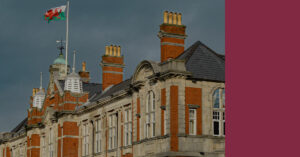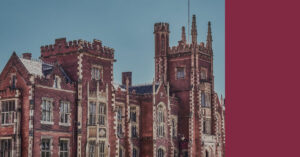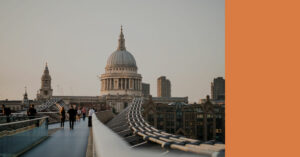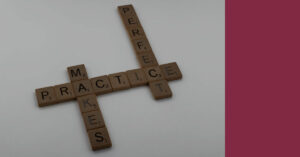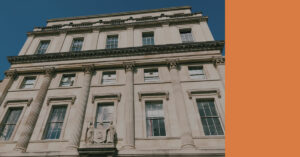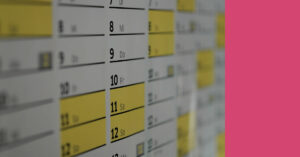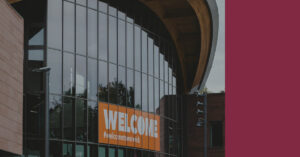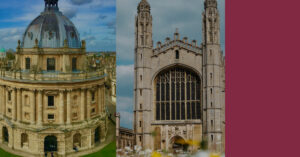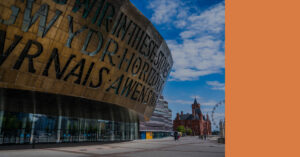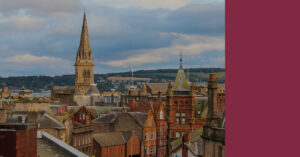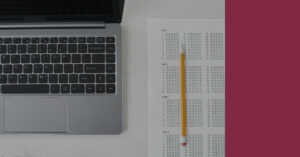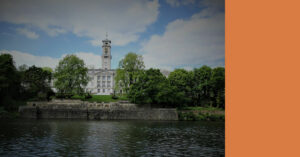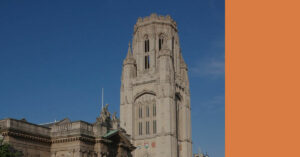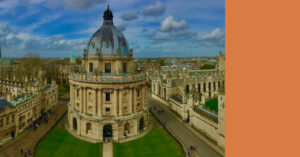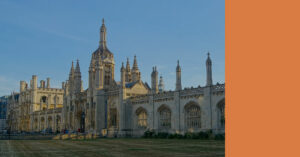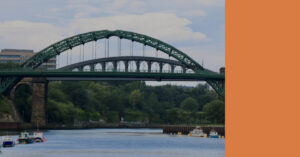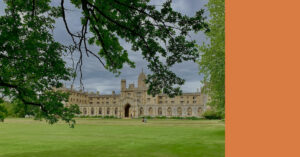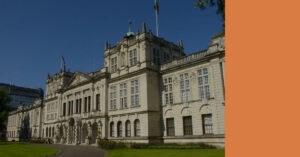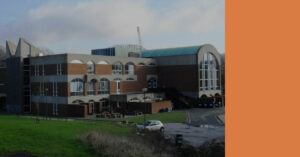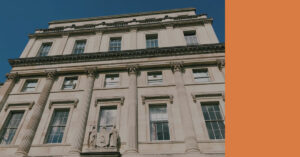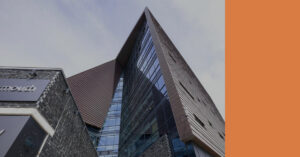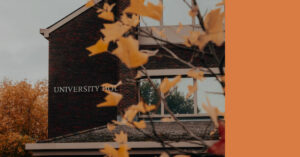Welcome to our UK Medical School Review series. In this series, we work with current students to produce an in-depth overview of each UK Medical School, covering what it is like to study there, how the course looks and what you need to get in.
Today, we are focussing on Bristol Medical School, a key member of the Russell Group of UK research-intensive universities. Tilly, a Bristol Medic, shares her experiences and insights as a current student throughout.
Let’s get started with an overview of Bristol Medical School…
Overview Of Bristol Medical School
About Bristol Medical School
Bristol Medical School was built to provide training to people working on the wards of Bristol Infirmary (founded 1737), the Clifton Dispensary (founded 1812) and the General Hospital (founded 1832). In 1873, the Medical School sought association with the Bristol Library Society and the Bristol Institution for the advancement of Science, Literature and the Arts. An agreement to affiliate with University College, Bristol was agreed in 1879 and amalgamation finally took place in 1893. Medicine is now the University’s largest faculty.
Nowadays, the Medical School offers 2 Medicine courses, both of which lead to the award of a medical degree: the standard 5-year full-time MB ChB Medicine course and the MB ChB Gateway to Medicine course – a 6-year course with an extra foundation year for students who don’t achieve the entry requirements. There is no Graduate entry course. Deferred entry is welcomed.
Bristol Medical School

- University Age: 146
- UK Ranking: 5th
- Pint Price: £3.00
- Alumni Notability: 8/10
- A-level Requirements: AAA
- Places Available: 225
- Applicant Success Rate: 20%
- Teaching Style: Integrated
- Interview Style: MMI
- Admissions Test: UCAT
Bristol Medical School Alumni
Among its notable alumni is Max Delbrück, a research worker at the University in 1930-32 who obtained a Nobel Prize in Medicine 1969 for discoveries concerning ‘the replication mechanism and genetic structure of viruses, and 15 Fellows of the Academy of Medical Sciences.
Why did you choose to study at Bristol?
“I closely looked into different course structures and thought that CBL was a great way to learn. It seemed logical to focus on each body system separately and get the opportunity to learn about all aspects of this including histology, biochemistry and anatomy. I was also drawn to Bristol because they focus on the helical theme of effective consulting. I loved how from first year you had the opportunity to learn in the primary and secondary care setting interacting with patients.
At Bristol, students get the opportunity to study at a variety of academies across the South West in Bath, Gloucester, Somerset and Swindon. The clinical academies allow students to learn in both rural and city-based hospitals, interacting with a diverse range of patients and staff.”
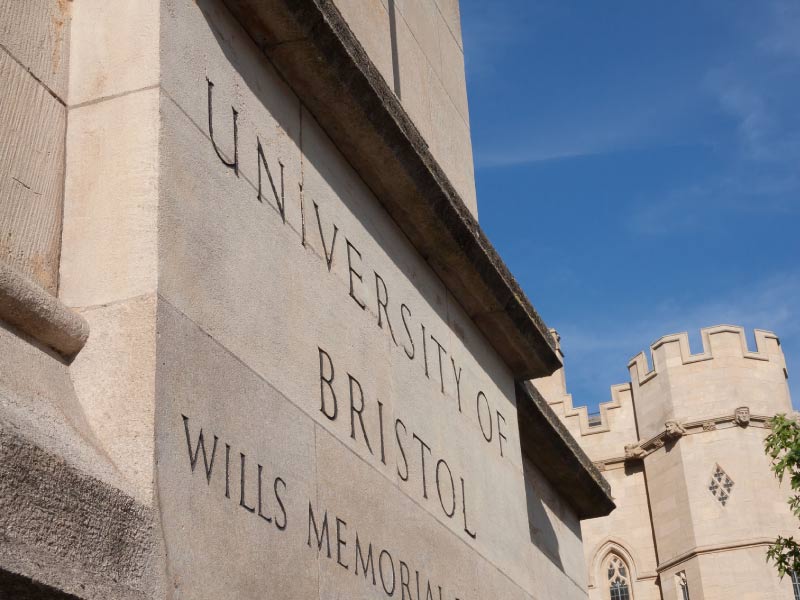
What is the best thing and worst thing about your Medical School?
“The best thing about Bristol medical school is their attitude and prioritisation of student health and wellbeing. Medical school will inevitably be full of ups and downs, Bristol’s accessible services help you to stay well and get the most of your time at University. The faculty of health have their own wellbeing advisors in addition to the student wellbeing services. All the teaching staff in the medical school are extremely approachable. You will be given a professional mentor who will support you through the years of medical school and be there to congratulate you on graduation day.
The worst thing about studying at the University of Bristol is that we don’t have a building for medical school building, this means your lectures are often in different places across the campus. During fresher’s week, I would recommend having a walk around campus. Soak in the beautiful architecture and get to know where you will need to go in the first week.”
Medical School Rankings
The following link will take you to the Complete University Guide Medicine League Table. Here, you can see that the University of Bristol Medical School takes 5th position with an overall score of 98%:
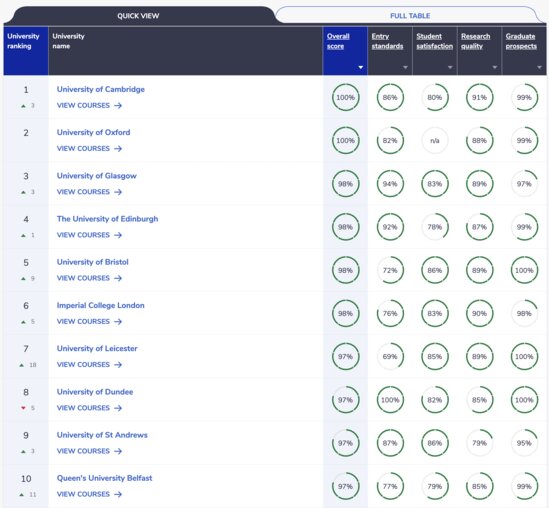
The table also highlights 99% graduate prospects for Bristol Medics so there’s little to worry about once you graduate!
Rankings will, of course, differ between other tables; the Guardian includes different aspects to the Complete University Guide. When making your own decision on which table to look at, think about what you place more importance on, such as spending per student or career prospects. Keep in mind that all Medical Schools are highly ranked with excellent ratings across the board.
Bristol Medical School Fees And Financial Support
Yearly tuition fees for both the standard and foundation year courses at the University of Bristol are £9,250 for home, Channel Islands and Isle of Man students, whilst for EU and international students, fees are £36,800. Tuition fee loans are offered to all UK students by the Government and cover the course fees in full. Fees do not have to be paid upfront.
Bristol offers a comprehensive package of financial support including bursaries, scholarships, emergency and hardship funds and money advice from their Fees and Funding team and Careers Service.
What are the living costs like?
“Many medical students may worry about their finances and gaining financial security. Although your studies will take up a large proportion of your time, many medical students manage to work part-time in the evenings or weekends. Depending on circumstances, some students try to get full/ part-time work during University holidays so they have more financial security during the term time.
It is important to be aware that the cost of living does vary dramatically between the North to South. Bristol would be considered one of the more expensive UK university cities, however, there are affordable options. There is a range of accommodation options at Bristol with more affordable options starting at £90 per week. Bristol also provides financial assistance for students such as accommodation bursaries and scholarships. Most halls of residence are within walking distance of the University, for students further out in Stoke Bishop, they are provided with a free bus pass”
Not sure where to start with your Medical School application?
Our Complete Bundle provides support for your Personal Statement, UCAT, BMAT and Interview and guides you to a successful application.
With our Complete Bundle, we guarantee that you will get at least one offer to study Medicine, or your money back.
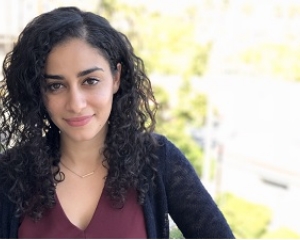

What Is Studying at bristol medical school Like?
The Medicine course at the University of Bristol combines a traditional setting with the benefits of modern teaching techniques through a blend of lectures, case-based learning, cadaveric anatomy prosections and practical work with an integration of basic science and clinical learning throughout the course.
Early clinical exposure is offered in hospitals, community and primary care settings, and Bristol uniquely encourages Medical Students to share some teaching with other healthcare students, such as nurses and pharmacists, to work as a team and mimic the multidisciplinary nature of a Medical career.
Clinical years allow students to fully delve into placements and put what they have learnt into practice. Students are placed at a wide range of care settings across the South West region including Bath, Somerset, Swindon and Gloucestershire.

What is a week in first year like at Bristol Medical School?
“Each case-based learning (CBL) cycle lasts over 2 weeks. Over the 2 weeks, you will have around 10 lectures. You will have 3 CBL sessions with your group and facilitator over the 2 weeks. Outside of CBL sessions you will be expected to engage with self-directed learning and will be provided with case-specific outcomes to make sure you remain focused on the correct content. The effective consulting element of the course involves one 3 hour session in a clinical environment, a 2-hour session with a tutor and actor and an effective consulting lecture. There will also be 2 practicals: a biomedical science practical and an anatomy practical in the dissection room.”
Bristol Medical School Degree Content
The course is 5 years following the structure of: Year 1 – exploring the concepts of health and wellbeing from multiple perspectives; Year 2 – exploring disease processes and constructing a list of differential diagnoses for common symptoms; Year 3 – the opportunity to discover how scheduled (elective) and unscheduled (emergency) care is delivered in the hospital setting; Year 4 – an insight into medical practice and finally Year 5 – senior clinical assistantships to prepare students for the Foundation programme.
There is the option of intercalation between Years 3 and 4. During this year, students have the option to spend an additional year studying for an intercalated degree, completing a research project in a Medical science or humanities subject, either at the University or elsewhere.
Throughout the course, there are substantial student choice modules to allow students to explore personal interests and potential career options.
There is the exciting opportunity to study abroad as part of the final year Elective, and to further prepare students for their Foundation Years there are three 9-week student assistantships available in the final year.
Summary of the curriculum:
Year 1: Explore the concepts of health and wellbeing from multiple perspectives
- Junior clinical and scientific reasoning
- Basic life support and first aid training
- Community visits and healthcare assistant practice
- Structure and function of the human body
- Systems-based approach using case-based learning
Year 2: Explore disease processes and construct a list of differential diagnoses for common symptoms
- Intermediate clinical and scientific reasoning
- Basic life support instructor training
- Community, hospice and third sector visits
- Neuroscience and psychology
- Body defence and pathological processes
Year 3: Junior clinical clerkships to give the opportunity to discover how scheduled (elective) and unscheduled (emergency) care is delivered in the hospital setting
- Advanced clinical & scientific reasoning: including rational investigation & prescribing
- Leadership, teamwork and interprofessional practice
- Legal and ethical frameworks of good medical practice
Year 4: Intermediate clinical clerkships to give you an insight into medical practise across the human life course
- Reproductive health
- Mental health and wellbeing
- Ageing and older people
- Cancer and continuing care
Year 5: Senior clinical assistantships will prepare you for your foundation programme posts
- You will be involved in patient care and supported to contribute, with your team, to decision-making about your patients.
- You will be helped to deal with the uncertainties inherent in the practice of medicine and you will be equipped to provide safe and effective care in medical emergencies.
- You will be involved in assistantships in:
- Medicine
- Emergency, perioperative, prehospital and critical unscheduled care
- Surgery
- Primary and community care
The first year of the 6-year programme will include:
- Anatomy, physiology and biochemistry of the healthy human body
- Principles of chemistry and biochemistry
- Mathematical methods
- Clinical professional attributes
- Relevant work experience
On completion of this first year, these students will then join the MB ChB Medicine students in their Year 1 to Year 5.
The Dentistry course at Bristol is a five-year degree focusing on clinical activity with integrated scientific and technical teaching. Students like the course because of the strong emphasis on clinical work, theory, science, clinical skills, personal and professional development and teamworking, which are integrated at the relevant levels.
What Makes Bristol Medical School Unique?
What makes Bristol Medical School unique?
“The MB ChB programme at Bristol has many unique elements. Medical students are encouraged to pursue their individual interests through all 5 years of the course. Each year students complete a student choice project which may involve completing a piece of academic writing or spending time on placement. There is a wide selection of projects to choose from which are based in a variety of settings including clinical academies, primary care settings and other external organisations. Not only can you develop your knowledge about an area only briefly covered in the core curriculum, but you can improve your research skills and network with professionals.
Furthermore, every year there are a number of specialist symposiums and cross-disciplinary events. The University frequently invites guest lecturers to speak to inspire students. For example, last year, Dr Rypy Ajula, the NHS GP who started “The Doctor’s Kitchen”, led an exciting session for second-year students.
As part of your effective consulting module each year, you are asked to produce a creative piece of work. Bristol tries to encourage their medical students to engage with the arts and develop their creativity skills. The arts allow doctors to understand more about human conditions. Often creative work, such as a drawing, painting or poem writing that reflects your experience meeting a patient or clinician, can be extremely thought-provoking.”
Bristol Medicine Selection Process
Stage 1: applicants are assessed on their academic record on if they achieve the minimum entry requirements
Stage 2: UCAT combined score used to determine applicants invited to interview
Stage 3: criminal record and occupational health clearance
Stage 4: applicants attend interviews
Stage 5: scores from interviews compiled and offers made.
Bristol Medical School Entry Requirements
| Exam | MB ChB Medicine Course |
|---|---|
| GCSEs | 7/A in GCSE Mathematics. 4/C in GCSE English |
| A-levels | Standard offer of AAA including Chemistry and either Biology, Physics or Mathematics. Contextual offer of ABB including A in Chemistry and B in one of Biology, Physics or Mathematics |
| IB | Standard offer of 36 points overall with 18 at Higher Level. Contextual offer of 32 points overall with 16 at Higher Level |
| Other accepted qualifications | Cambridge Pre-U, BTEC, Scottish Qualifications Authority, Welsh Baccalaureate, European Baccalaureate |
| Exam | MB ChB Gateway to Medicine Course |
|---|---|
| GCSEs | 4/C in GCSE Mathematics. 4/C in GCSE English |
| A-levels | BBC including B in Biology or Chemistry |
| IB | 29 points overall including 5 at Higher Level in Biology or Chemistry |
| Other accepted qualifications | Cambridge Pre-U, BTEC, Scottish Qualifications Authority, Welsh Baccalaureate |
| Exam | BDS Dentistry |
|---|---|
| GCSEs | Advanced numeracy requirement (7 or A in GCSE Mathematics or equivalent) and Standard literacy requirement (4 or C in GCSE English or equivalent). |
| A-levels | AAA including Chemistry and one of Biology, Physics or Mathematics. |
| IB | 36 points overall with 18 at Higher Level, including 6, 6 at Higher Level in Chemistry and one of Biology, Physics or Mathematics (either Analysis and Approaches or Applications and Interpretations). |
| Graduate Entry | Graduates are required to obtain a 2:1 in their degree and BBB at A-level including Chemistry and one of Biology, Physics or Mathematics. |
Craft an application worthy of Bristol with 6med!
Our Complete Bundle provides support for your Personal Statement, UCAT, BMAT and Interview and guides you to a successful application.
With our Complete Bundle, we guarantee that you will get at least one offer to study Medicine, or your money back.
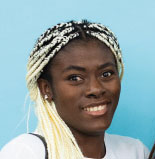

Bristol Medical School Personal Statement
The personal statement is no longer a weighted component of Bristol’s selection criteria and may only be used to differentiate between candidates with identical scores at interview.
Bristol strongly encourages applicants to obtain a minimum of 2 weeks’ worth of work experience as applicants may be asked to reflect on their work experience in the interview, showing insight into their potential future medical careers. The University does understand that currently, it is difficult to obtain clinical work experience and therefore any opportunities in working with the public e.g a customer service role, or volunteering in a care/health environment e.g a nursing home are warmly welcomed. If this is too difficult, then any online research, or evidence of seeking to develop your awareness of the role of a Doctor, is also acceptable.
Remember to show a realistic interest in Medicine, relevant life skills, a wide range of outside interests, acts of altruism and voluntary work and communication and interaction skills.
Bristol Medical School Admissions Tests
UCAT
The University Clinical Aptitude Test (UCAT) is required in order to apply to the University of Bristol. The combined score from all subsets, except Situational Judgement, will be used to select applicants for interviews. There is no cut-off score, and the number used as a threshold for interviews is subject to change every year.
UCAT Thresholds for Home Applicants:
- 2021 entry: 2830
- 2022 entry: 2870
UCAT Thresholds for Overseas Applicants:
- 2021 entry: 2880
- 2022 entry: 2910
Bristol offer bursaries to cover the cost of taking the UCAT. The BMAT is not required.
Bristol Medical School Interview
MMI Interview Style
The number of interviews given is roughly double the number of available spaces. Interviews typically take place from January to March.
Format for the interview is in the form of Multiple Mini Interview (MMI) stations, each assessing particular criteria. Each MMI lasts 6 minutes with 1 minute for reading instructions and 5 for completing the task. Each station is manned by 1 or 2 interviewers. The whole process takes approximately an hour.
The interview is there to provide the candidate the chance to demonstrate evidence of the skills they possess that show they are appropriate for a career in Medicine, such as resilience, reflection, communication and teamwork, as well as what insight they have into the job role.
Example Bristol Medical School Interview Questions:
- Why would you like to study at Bristol? (2018)
- Should doctors be healthy? (2019)
- Tell me about a time when you had to be resilient, and what did you learn from it? (2021)
- If you had multiple patients in need of a heart for transplant, but only one viable heart, how would you select a patient to give it to? (2018)
- Can you think of any strategies to improve A&E departments? (2020)
- What changes do you envisage in the NHS in the coming years? (2019)
- How long does it take to become a Paediatrician after Medical School? (2021)
- Why would you be a good doctor? (2019)
- How do you manage stress? (2021)
- What could be done to improve healthcare delivery? (2020)
- Tell me about an article that you have read recently. (2021)
- What medical advances have you come across recently? (2019)
Extra-Curriculars at Bristol Medical School
Outside of study time, what do most people get up to?
“At the University there is so much to get involved with over 350 societies. Whether you’re a pro-sportsperson or just trying to find a new hobby, there’s something for everyone. Galenical’s is the Official Medical Students’ society. Within Galenical’s, there are several sub-societies such as music ensemble groups, drama clubs and sports groups. Galenical’s was created to support medics in all areas of student life. They have a great welfare team and a friendly and knowledgeable committee. Considering the city of Bristol, there are endless places for students to visit and enjoy.
Bristol is certainly a progressive young city. If you enjoy exploring cool, artsy coffee shops, then you can head to Gloucester Road. Sunny days in Bristol are more common than you might expect. The waterfront near the harbourside is a lovely place to unwind in the sun or visit Castle Park or Avon Gorge for a leisurely walk. Bristol has a rich and interesting history with several great historical attractions such as the Cathedral and SS Great Britain Museum.
In addition to the work of Banksy, many areas of Bristol are covered with unique street art. Many students rave about Bristol’s nightlife. Bristol’s nightclub Motion was voted one of the best 20 in the world. If clubbing’s not for you, try a cider at The Apple or a cocktail at Bristol’s Rum Distillery.”
What is the Bristol accommodation like?
“There are many accommodation options for first-year students moving to Bristol. Being in halls is a great way to meet other freshers studying on other courses; you’ll find you spend most of your day with other medics. There are 3 residential villages in Bristol with several other individual halls of residence around the city. The West Residential Village is based in Clifton. Clifton is a short walk from the university with several cafes and green spaces along the way. Around 2,000 undergraduate students live there, so you’ll be sure to find like-minded people.
There are 6 main halls of residence in the North Residential Village including Wills and Churchill. The North Village is very close to Durdham Down, a huge green space used for leisure, walking, sports and even sightseeing on the Clifton Suspension Bridge. There are both catered and non-catered residences in the North Village. Generally, these halls of residence are extremely social with many flat parties and social events.
The East Village is the largest Residential Village with 9 residences. These Halls are in and around Bristol City Centre so are within walking distance from the University (if you don’t already, you will begin to appreciate every extra minute of your lie-in). Living in the city centre is great if you want quick, easy access to shopping centres, restaurants, cafes and bars. In all 3 villages, there are several room types available ranging from Twin rooms with basins to Studios.”
Bristol Medical School Contact
Telephone: +44 (0)117 928 9000
Email: [email protected]
Postal address:
University of Bristol
Beacon House
Queens Road
Bristol
BS8 1QU
UK
Advice for prospective bristol medical school students
What advice would you give to a first-year student starting at Bristol Medical School?
“Although it might feel like you are just beginning the very long journey of completing a medical degree, your time at medical school will fly by. My main tip for first years would be to try to develop healthy habits from the beginning. The university does not expect you to be fully-fledged doctors after 1 term of medical school. If you are curious and diligent towards your studies, you will find you really excel.
Be confident to ask questions or ask for something to be explained, medicine involves lifelong learning so you will need to reach out to peers and other professionals. When you transition into the clinical years for 3rd, 4th and 5th year, you might find you have less free time outside of the hospital. During years 1 and 2, prioritise spending time with friends, embrace new opportunities and immerse yourself in the culture of Bristol.”
Check out our other UK Medical School Reviews:
Not sure where to start with your Medical School application?
Our Complete Bundle provides support for your Personal Statement, UCAT, BMAT and Interview and guides you to a successful application.
With our Complete Bundle, we guarantee that you will get at least one offer to study Medicine, or your money back.


By Phoebe Baker
